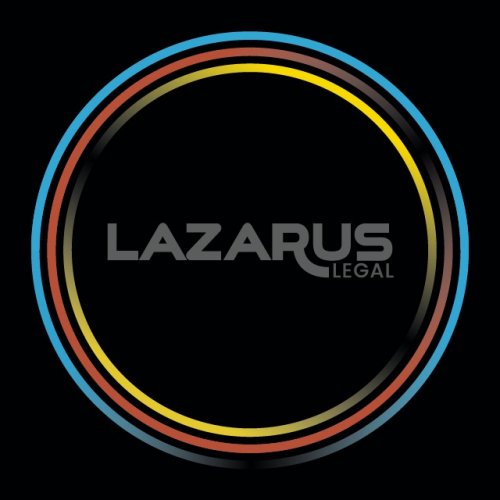Best New Business Formation Lawyers in Sydney
Share your needs with us, get contacted by law firms.
Free. Takes 2 min.
List of the best lawyers in Sydney, Australia
Australia New Business Formation Legal Articles
Browse our 1 legal article about New Business Formation in Australia written by expert lawyers.
- How to Start a Business in Australia: A Simple Guide and How a Lawyer Can Help
- Australia is known for its vibrant economy, supportive government policies, and high quality of life, making it an attractive destination for entrepreneurs looking to start a business. Whether you're launching a small local shop or a large-scale enterprise, Australia offers a range of opportunities for growth and success.However, starting a... Read more →
About New Business Formation Law in Sydney, Australia
New business formation in Sydney, Australia, involves several legal processes and considerations. Starting a new business typically requires selecting a suitable business structure-such as a sole trader, partnership, or company-registering the business with governmental authorities, ensuring compliance with local and national regulations, and understanding the implications of tax laws. The legal landscape around new business formation is designed to encourage entrepreneurial activity while ensuring fairness and compliance with Australian laws.
Why You May Need a Lawyer
While it's possible to start a business without legal help, many situations warrant the expertise of a lawyer. Lawyers can assist in choosing the right business structure, drafting contracts, understanding regulatory requirements, protecting intellectual property, and navigating tax obligations. Legal advice is particularly beneficial in complex situations such as partnership agreements, franchising, or when sharing equity. A lawyer can help mitigate risks and ensure that your business is set up for success.
Local Laws Overview
Local laws in Sydney that affect new business formation include business registration with the Australian Securities and Investments Commission (ASIC), compliance with the Australian Business Number (ABN) and Goods and Services Tax (GST) requirements, and workplace regulations under WorkSafe NSW. Entrepreneurs must also consider zoning laws and obtain the necessary permits for their specific business activities. Moreover, businesses need to adhere to the Fair Trading laws, which protect consumers and ensure business practices are fair and honest.
Frequently Asked Questions
What is the difference between a sole trader and a company?
A sole trader is an individual running a business, while a company is a separate legal entity. A company provides limited liability to its shareholders, whereas a sole trader is personally liable for the business's debts.
How do I register a business name in Sydney?
To register a business name, you must apply through the Australian Securities and Investments Commission (ASIC) website, ensuring the name is not already registered or too similar to an existing name.
What legal documents are necessary when starting a business?
Essential legal documents include business registration certificates, partnership or shareholder agreements, employment contracts, and any necessary licenses or permits specific to your industry.
Do I need an ABN, and how do I get it?
An Australian Business Number (ABN) is required for all businesses to conduct transactions legally. You can apply for an ABN directly through the Australian Business Register website.
What taxes am I liable for as a new business owner in Sydney?
The primary taxes include income tax, Goods and Services Tax (GST), and possibly payroll tax if your wages exceed a certain threshold. Businesses also need to consider superannuation obligations and potential state taxes.
How do I protect my intellectual property?
Registering trademarks, obtaining patents, and using non-disclosure agreements (NDAs) are common methods to protect intellectual property, ensuring your business's ideas and creations are legally safeguarded.
What are the key insurance requirements for a new business?
Common business insurances include public liability insurance, workers' compensation insurance, and professional indemnity insurance, depending on the industry and the nature of your business activities.
How do zoning laws affect my business?
Zoning laws determine where certain businesses can operate. It's crucial to ensure that the business location complies with these laws to avoid penalties or the need to relocate.
What are my obligations regarding employee rights and conditions?
Obligations include adhering to Fair Work Commission guidelines, ensuring minimum wage compliance, providing appropriate working conditions, and observing workplace health and safety regulations.
How can I change my business structure later on?
Changing your business structure involves legal and regulatory steps, including registering the new entity and transferring relevant assets. Legal advice is often recommended to navigate this process smoothly.
Additional Resources
For further assistance, consider exploring these resources:
- Australian Securities and Investments Commission (ASIC)
- Australian Business Register (ABR)
- NSW Business Chamber
- Fair Work Commission
- Australian Taxation Office (ATO)
- WorkSafe NSW
- Local council websites for zoning and permit information
Next Steps
If you need legal assistance in new business formation, consider reaching out to a business lawyer specializing in startups. Attend networking events to meet experienced professionals who can offer insights and support. You might also benefit from consulting business advisory services that offer guidance to new entrepreneurs. Be proactive about understanding your legal obligations to establish a strong foundation for your new venture in Sydney.
Lawzana helps you find the best lawyers and law firms in Sydney through a curated and pre-screened list of qualified legal professionals. Our platform offers rankings and detailed profiles of attorneys and law firms, allowing you to compare based on practice areas, including New Business Formation, experience, and client feedback.
Each profile includes a description of the firm's areas of practice, client reviews, team members and partners, year of establishment, spoken languages, office locations, contact information, social media presence, and any published articles or resources. Most firms on our platform speak English and are experienced in both local and international legal matters.
Get a quote from top-rated law firms in Sydney, Australia — quickly, securely, and without unnecessary hassle.
Disclaimer:
The information provided on this page is for general informational purposes only and does not constitute legal advice. While we strive to ensure the accuracy and relevance of the content, legal information may change over time, and interpretations of the law can vary. You should always consult with a qualified legal professional for advice specific to your situation.
We disclaim all liability for actions taken or not taken based on the content of this page. If you believe any information is incorrect or outdated, please contact us, and we will review and update it where appropriate.
















